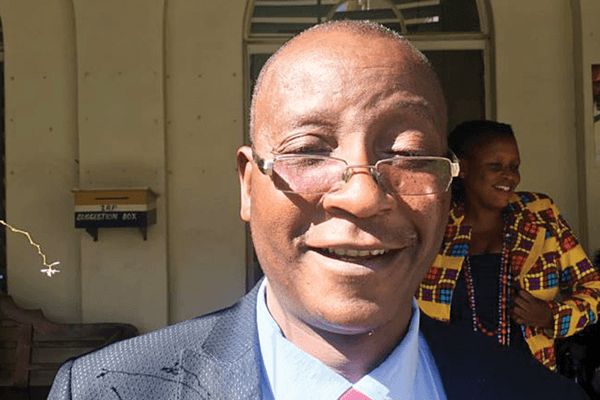
BY VENERANDA LANGA
JUSTICE minister Ziyambi Ziyambi last week told the Senate that there was need to upgrade anti-riot gear in the country during debate in Parliament on the Maintenance of Peace and Order Bill (Mopa), which might soon be signed by President Emmerson Mnangagwa to make it an enforceable law.
Mopa will replace the oppressive Public Order and Security Act (Posa), but the opposition MDC and other sections of society still maintain that it is actually worse than Posa.
Ziyambi also told the Senate that government was failing to procure required anti-riot gear because of sanctions.
“I submit that I agree that we need to upgrade our anti-riot equipment, and I submit that it is difficult for us in government at the moment to procure that riot equipment because of sanctions,” Ziyambi said during the Senate debate on the Mopa Bill.
“I submit that once the sanctions are removed and we are able to trade freely with anyone, that issue can be resolved. I will not shy away from saying the truth,” he said.
Despite Ziyambi’s claims that government was failing to upgrade anti-riot equipment due to sanctions, in June this year our sister publication, the Zimbabwe Independent reported that police had acquired 3 343 AK-47 assault rifles and about 600 sniper rifles as they prepared to quell looming street protests against Mnangagwa’s government over the deteriorating economic situation.
During the heated debate on the Mopa Bill in the Senate, Zanu PF legislators were in favour of deployment of soldiers to assist the police to quell protests. Matabeleland South Senator Molly Ndlovu (Zanu PF) said: “The President has the right to deploy soldiers whenever there is anarchy. He cannot just deploy soldiers when everything is fine. He cannot just send soldiers when nothing would have gone wrong in the country, but if you destroy people’s houses and their businesses, you will get what you deserve.”
- Chamisa under fire over US$120K donation
- Mavhunga puts DeMbare into Chibuku quarterfinals
- Pension funds bet on Cabora Bassa oilfields
- Councils defy govt fire tender directive
Keep Reading
But MDC senators were opposed to the idea, saying that soldiers were trained to kill and, therefore, it would be a bad idea to deploy them during protests.
Manicaland senator Douglas Mwonzora (MDC Alliance) said: “On August 1 (2018), the army dealt with demonstrations, (and) we had six bodies. On January 14 to 16, the army dealt with demonstrations and we had 22 bodies that were unaccounted for. We have 28 bodies in two demonstrations. In South Africa, between 2001 and 2004, only four people died in demonstrations, but in Zimbabwe, 28 people died in two demonstrations.
“It is two out of 18 demonstrations that were violent. Why are we forgetting the 16 peaceful demonstrations?” Mwonzora asked. Midlands senator Lillian Timveous and her Manicaland counterpart Keresencia Chabuka (both MDC Alliance) claimed that demonstrators were peaceful, but infiltrators were sent to cause the disruptions so that the demonstrators would be blamed.
Ziyambi’s response was that the Constitution crafted by all political parties stipulated in section 213 that the President could deploy armed forces.
The Justice minister said the Mopa Bill clearly stated that once the defence forces are deployed to assist the police, they would be under the command of the police and behave like the police.











